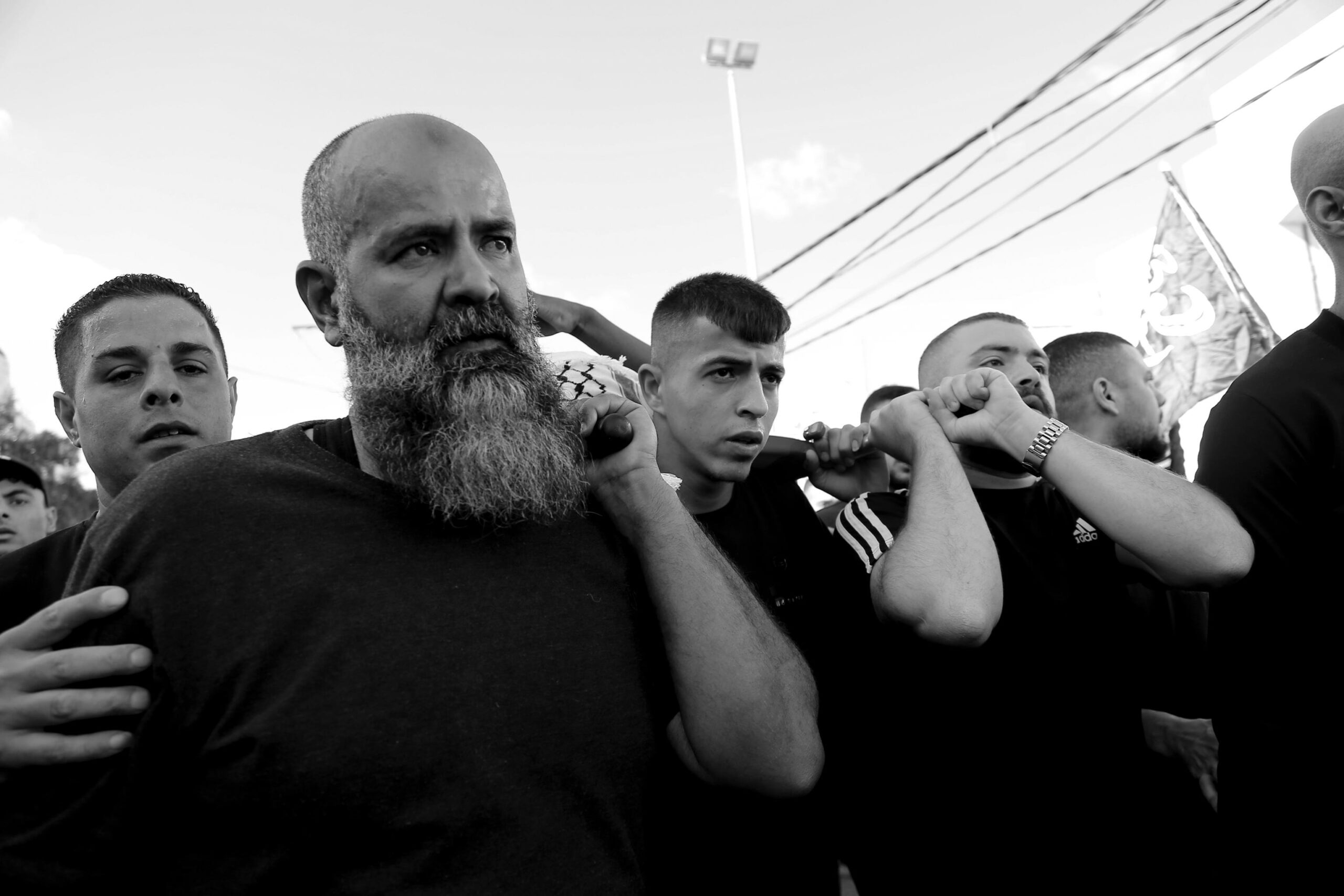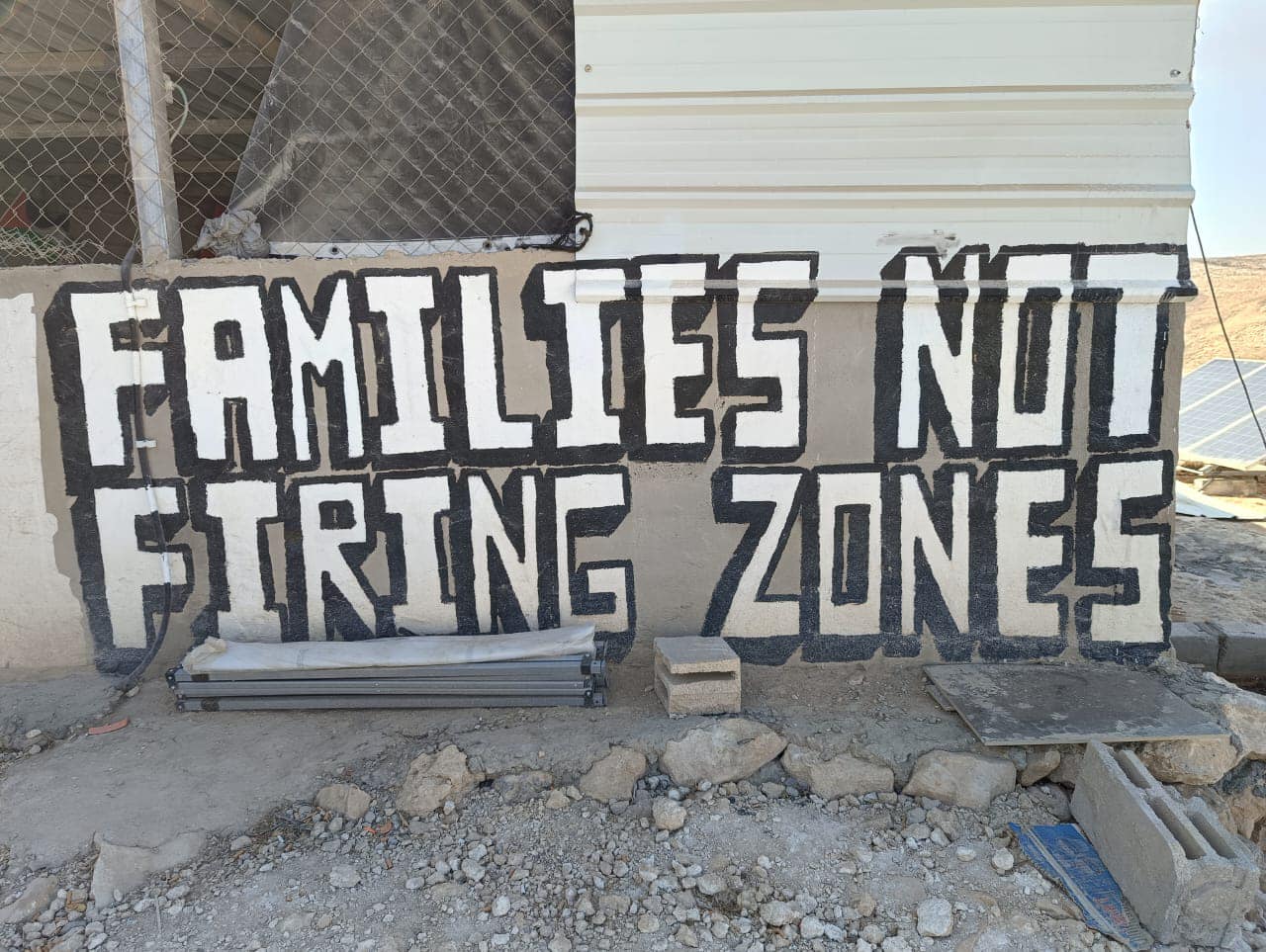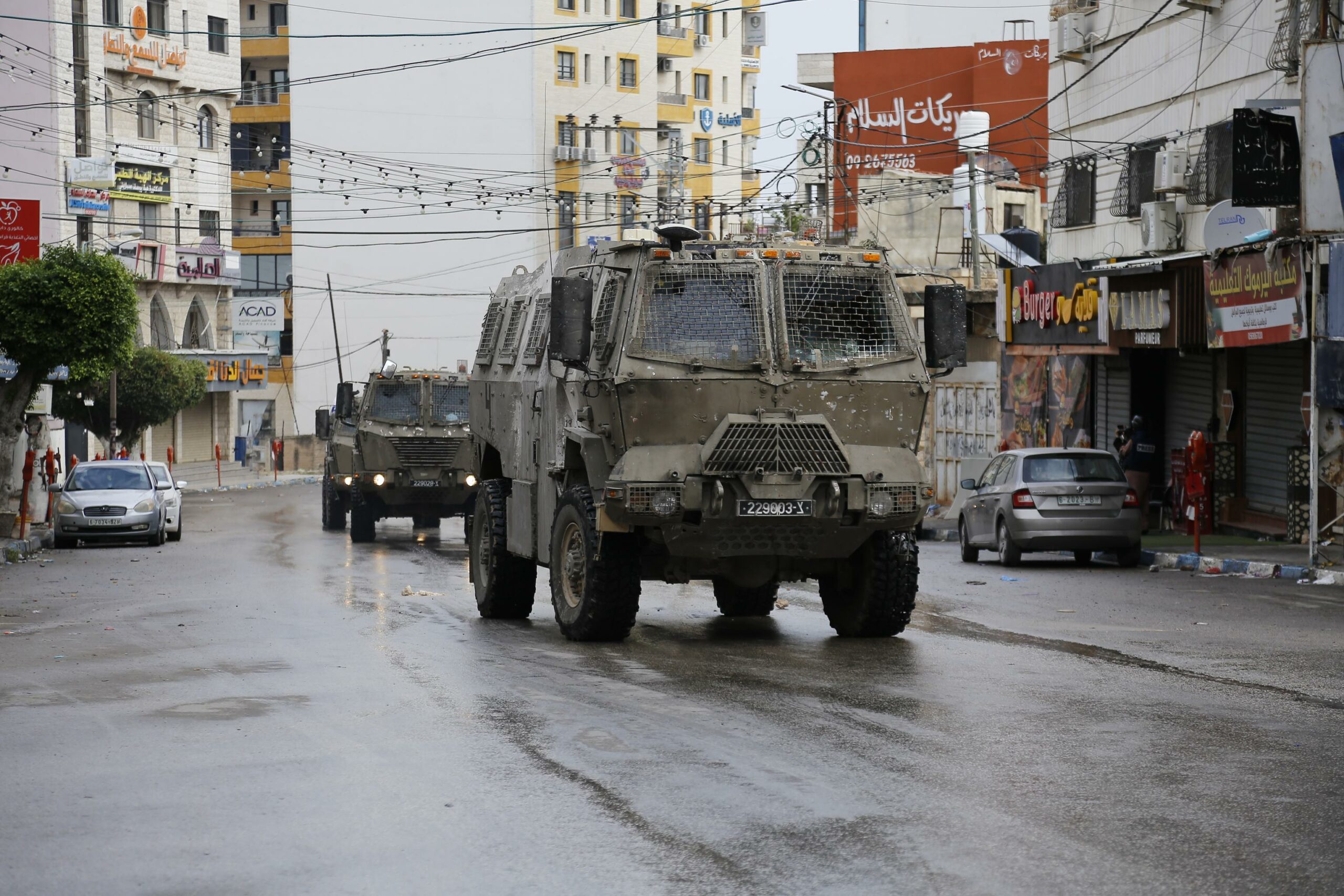-
Another day of grief in Tulkarem refugee camp
16 November 2023 | International Solidarity Movement | Tulkarem By. Diana Khwaelid Hundreds of Palestinians mourned the 7 martyrs who were killed by the Israeli occupation forces last Tuesday, November 14, in Tulkarem refugee camp: 2 of them were killed by Special Forces, 3 of them were killed while targeting homes with drones and others […]
-
“Leave, or we kill everyone”: contact your representatives to stop the ethnic cleansing in Masafer Yatta
UPDATED-14 November, 2023, Wadi Tiran in the occupied West Bank, Palestine Thanks to the efforts of human rights volunteers and their supporters, the inhabitants of the village of Wadi Tiran have survived another night. The inhabitants were given a 24 hour warning “”. The volunteers kept a night watch, sleeping in a rota so that […]
-
Another crime committed in Tulkarem camp by the Occupation Forces
14 November 2023 | International Solidarity Movement | Tulkarem By Diana Khwaelid Another crime perpetrated by the Israeli occupation in the Tulkarem refugee camp. The blood of the four Palestinians who were killed about a week ago had not yet dried up before the Israeli Occupation Forces committed a new crime that claimed the lives […]
Action Alert An Nabi Saleh Apartheid Wall Arrests BDS Bethlehem Bil'in Cast Lead Demonstration Denial of Entry Ethnic Cleansing Farmers Gaza Global Actions Hebron House Demolition International law Israeli Army Jerusalem Live Ammunition Nablus Ni'lin Prisoner Ramallah Rubber-coated steel bullets Settlement Settlers Settler violence Tear-Gas Canister Video



